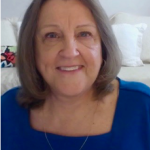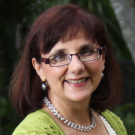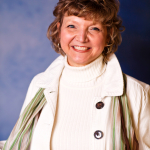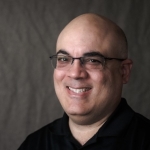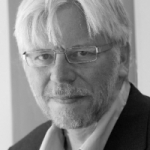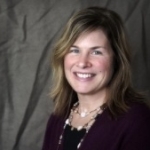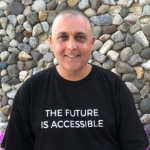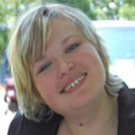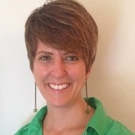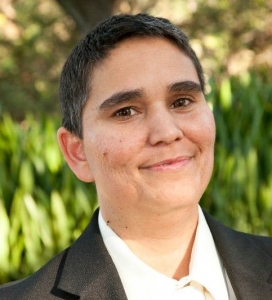Strand Advisors and Partners:
ATIA 2021 —
The First Virtual Event
The ATIA 2021 strand advisors are each recognized experts in their respective session strands. Guided by Educational Program Chair Joy Zabala, the strand advisors play a critical role in curating the conference education program and ensuring each education session meets the diverse needs of conference attendees.
Education Program Chair
Joy Zabala, Co-Director of Center on Inclusive Technology & Education Systems (CITES), CAST
Joy Smiley Zabala, Ed.D., is a general and special educator who has worked with students, families, education agencies and others across the U.S. and abroad for more than 25 years to expand the use of assistive technology to increase the communication, participation and productivity of people with disabilities. She is the developer of the SETT Framework, a former president of the Technology and Media division of CEC, a founder of QIAT, and the facilitator of the QIAT List. Dr. Zabala is the co-director of the Center on Inclusive Technology & Education Systems (CITES) at CAST. She is a strong supporter of Universal Design for Learning as the foundational support for the education of all students and of assistive technology and accessible materials and technologies as complementary supports for those students who require them for active participation and achievement in UDL environments.
Contact Dr. Zabala at EducationProgramChair@atia.org.
AT for Physical Access and Participation
Supporting Partner:
William E. Janes, OTD, MSCI, OTR/L; Assistant Professor, Department of Occupational Therapy, University of Missouri; Representing Technology Special Interest Section, American Occupational Therapy Association (AOTA)
William Janes, OTD, MSCI, OTR/L is an occupational therapist and Assistant Research Professor at the University of Missouri. He has served in numerous volunteer leadership roles within AOTA, including Chair of the Technology SIS. He is currently vice-chair of RESNA’s Occupational Therapy PSG and serves on the Editorial Board of ATIA’s journal, Assistive Technology Outcomes and Benefits (ATOB). Dr. Janes’ work focuses on applications of consumer technologies to address the everyday needs of people living with disabilities. His current projects include a multi-site consortium for GoBabyGo data collection and an interdisciplinary makerspace devoted to inclusively designed assistive technologies.
Judith Schoonover, MEd, OTR/L, ATP, FAOTA, AT Consultant, Representing Early Intervention & School Special Interest Section, American Occupational Therapy Association (AOTA)
Judith Schoonover is an occupational therapist and former elementary school teacher. She is certified as an assistive technology professional (ATP) by RESNA and is a founding member of the Loudoun County Public Schools Assistive Technology Team. Judith has worked in schools for more than 44 years. She has authored articles and chapters and has presented on the topics of school-based occupational therapy, transition, literacy, and assistive technology internationally. She is the former vice president of the Virginia Occupational Therapy Association and served as the communication liaison for the American Occupational Therapy Association’s (AOTA) Early Intervention and School Special Interest Section. She participated in several National Association of State Directors of Special Education (NASDSE) workgroups addressing response to intervention (RTI), transition, and virtual schools. Currently, Judith represents AOTA on the National Joint Committee (NJC) for the Communication Needs of Persons with Severe Disabilities and participates on AOTA’s Transition Work Group.
Therese Willkomm, PhD, Director of New Hampshire’s State Assistive Technology Program with the Institute on Disability at the University of New Hampshire (UNH); Representing the Rehabilitation Engineering and Assistive Technology Society of North America (RESNA)
Dr. Therese Willkomm, PhD, is the Director of New Hampshire’s State Assistive Technology Program with the Institute on Disability at the University of New Hampshire (UNH) and is a clinical associate professor in the Department of Occupational Therapy. Dr. Willkomm is known nationally and internationally for her innovative strategies for creating solutions in minutes . She has designed and fabricated over two thousand solutions for individuals with disabilities including her patented A.T. Pad Stand, a multiuse assistive technology mounting device. She is also known throughout the county for her trainings on awesome iPad apps and adaptations. She has presented her work in 42 states, nine foreign countries and three U.S. Territories; has written 22 assistive technology related publications including her new book titled: “Assistive Technology Solutions in Minutes – Book 2 – Ordinary Items, Extraordinary Solutions ; and has appeared on RFD TV, CNN and most recently NPR Science Friday. Dr. Willkomm has received numerous national awards and recognitions including: being recognized by President Obama for the Obama Lean; presented at the 2016 Whitehouse Summit on Technology and Disability; and recipient of the 2017 Governor’s Accessibility Award for her years of service in creating accessible solutions for individual with disabilities.
Contact the AT for Physical Access and Participation Team at ATPAPStrand@atia.org.
Augmentative and Alternative Communication
Supporting Partner:
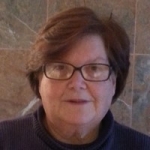 Amy Goldman, President-Elect, United States Society for AAC (USSAAC)
Amy Goldman, President-Elect, United States Society for AAC (USSAAC)
Amy S. Goldman is one of three national technical assistance specialists for the National Assistive Technology Act Technical Assistance and Training Center (AT3). She previously was the co-executive director of the Institute on Disabilities, University Center of Excellence in Developmental Disabilities at Temple University where she directed Pennsylvania’s Initiative on Assistive Technology as well as the Commonwealth’s “Assistive Technology (AT) Act” Program and other statewide assistive technology-related programs. A licensed speech-language pathologist, Amy’s career has focused on the area of augmentative and alternative communication (AAC) and especially, access to AAC for people with intellectual and developmental disabilities. Amy is a member of the National Joint Committee for the Communication Needs of Persons with Severe Disabilities (“NJC”) representing the American Speech-Language-Hearing Association (ASHA) and is the Vice President for Finance of the United States Society for AAC (USSAAC).
Angela Standridge, Director, Texas Technology Access Program; Representing ASHA AAC SIG 12
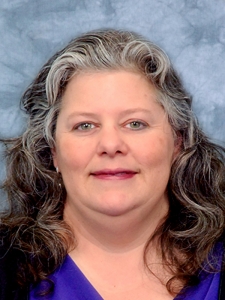 Angela Standridge, M.A., CCC-SLP is a speech language pathologist with over 35 years of experience in assistive technology with an emphasis in augmentative and alternative communication. She has presented at national and international conferees on the aforementioned topics. She is currently the associate chair for the ASHA Special Interest Group 12 (AAC) Coordinating Committee. She has worked in public schools, private practice, private industry, and is currently employed at Region 4 Education Service Center in Houston, Texas providing professional development and technical assistance in assistive technology for public school personnel. In the past, she has also lead the Texas AT Network, a grant program through Texas Education Agency.
Angela Standridge, M.A., CCC-SLP is a speech language pathologist with over 35 years of experience in assistive technology with an emphasis in augmentative and alternative communication. She has presented at national and international conferees on the aforementioned topics. She is currently the associate chair for the ASHA Special Interest Group 12 (AAC) Coordinating Committee. She has worked in public schools, private practice, private industry, and is currently employed at Region 4 Education Service Center in Houston, Texas providing professional development and technical assistance in assistive technology for public school personnel. In the past, she has also lead the Texas AT Network, a grant program through Texas Education Agency.
Carole Zangari, Professor, Nova Southeastern University
Carole Zangari, Ph.D., CCC-SLP, is a faculty member in the Speech-Language Pathology department in the College of Health Care Sciences at Nova Southeastern University (NSU) and the executive director of the NSU Satellite of the University of Miami-NSU Center for Autism and Related Disabilities (CARD). She is a licensed, certified speech language pathologist and provides clinical supervision to graduate student clinicians serving children and adults with AAC needs. Dr. Zangari also directs the AAC Lab and is the lead instructor for AAC courses at the masters and doctoral levels. Dr. Zangari is a past coordinator of the ASHA Special Interest Division on AAC and has presented numerous times at national and international conferences. She is co-editor of the book “Practically Speaking: Language, Literacy, and Academic Development of Students with AAC Needs” and blogs at www.PrAACtical AAC.org. Dr. Zangari combined her interests in core language and literacy development to co-author the “TELL ME Curriculum: Teaching Language and Early Literacy through Multimodal Expression” for preschool children with AAC needs.
Dr. Zangari can be reached through her blog or other social media venues including Twitter (@PrAACticalAAC), Facebook (www.Facebook.com/PrAACticalAAC), Pinterest (pinterest.com/AACandAT), and Instagram (@praacticalaac).
Contact the AAC Team at AACStrand@atia.org.
Education & Learning: Early Intervention – 12/Higher Education
Kelly Fonner, Fonner Consulting, Assistive/Educational Technology Consultant
Kelly Fonner, MS, is a self-employed consultant and trainer in assistive and educational technology. She has a BS in special education from Millersville University and an MS in educational technology with an emphasis in rehabilitation/special education technology from The Johns Hopkins University. Her continuing education and research has been in the area of adult education and special education technology at the University of Wisconsin-Milwaukee. She holds an Assistive Technology Applications Certificate of Learning from California State University – Northridge. Kelly has been a teacher, para-educator, instructional media specialist and assistive technology specialist and is currently a self-employed consultant in assistive and educational technology. In these roles, she has worked for the public school system as well as private, non-profit organizations, a statewide AT project and has been an instructor in university courses on AT. Kelly is also a family member of individuals with disabilities.
Since 1986 Kelly has presented at schools, conferences and to families in 48 states as well as internationally in Australia, Canada and South Africa. She speaks on a wide range of topics including assistive technology assessment and implementation strategies, augmentative communication, computer access, electronic literacy and study skills. Each year she works with approximately 50 school-based teams supporting students and their teams in the implementation of AAC and electronic literacy in the classroom. She is available to do seminars, webinars, consultations and workshops. Her website is www.kellyfonner.com.
Luis Pérez, Ph. D., Technical Assistance Specialist, National Center on Accessible Materials for Learning (AEM Center) at CAST, Representing the Inclusive Learning Network, International Society for Technology in Education
Luis Pérez is the current President of the Inclusive Learning Network of the International Society for Technology in Education (ISTE), which named him its 2016 Outstanding Inclusive Educator. Luis is a technical assistance specialist for the National Center on Accessible Educational Materials at CAST. In this role, he promotes the creation, delivery and use of high quality accessible educational materials and technologies to support equitable learning opportunities for all students. He holds a doctorate in special education and a master’s degree in instructional technology from the University of South Florida. He was selected as an Apple Distinguished Educator (ADE) in 2009, and as a Google in Education Certified Educator in 2014. Luis has published three books on accessibility, mobile learning and UDL: Mobile Learning for All (Corwin Press), Dive into UDL (ISTE) and Learning on the Go (CAST Publishing). In addition to his work in educational technology, Luis is an avid photographer whose work has been featured in Better Photography magazine, Business Insider, the New York Times Bits Blog and the Sydney Morning Herald.
Contact the Education/Learning Team at Education-LearningStrand@atia.org
Higher Education
Supporting Partner:
Carolyn P. Phillips, Director of Education & Services, AccessText Network, Center for Inclusive Design & Innovation in the College of Design at Georgia Tech; Director and Principal Investigator of Tools for Life

Carolyn P. Phillips is nationally recognized in the field of assistive technology and disabilities. She currently serves as the Director of Education & Services at the Center for Inclusive Design & Innovation in the College of Design at Georgia Tech and with the AccessText Network. Carolyn serves as Director and Principal Investigator of Tools for Life, Georgia’s Assistive Technology (AT) Act Program at Georgia Tech | CIDI. In this capacity, she oversees a wide range of AT projects and programs, including the National Pass It On Center. Ms. Phillips teaches a graduate class at the University of Georgia in the College of Education. She is a frequent keynote speaker at conferences and guest lecturer at other universities. She has published articles in journals, chapters in books in AT and poetry focused on living with disabilities. Carolyn has dedicated her time and energy to promoting the independence of all people, including those with disabilities through advocacy, education, assistive technology and systems change. Among other awards and recognitions, she has received the National Rehabilitation Association’s Belle Greve Award for “outstanding contributions and major positive impacts” in the disability community. The Department of Labor in Georgia also gave her the Director’s Award for “extraordinary and diligent service on behalf of people with disabilities.” She received her undergraduate degree from the University of Georgia, and her Master’s Degree from the University of Kentucky. Carolyn lives in Atlanta, Georgia.
Contact the Higher Education Team at HigherEdStrand@atia.org.
Secondary Strand: Leadership
Supporting Partner:
David Banes, Director, David Banes Access and Inclusion Services UK
David Banes is Director of his company David Banes Access and Inclusion Services. Having previously led assistive technology services in Europe and the Middle East, He now works across the globe building access infrastructure from policy to practice, based upon a detailed model of the ecosystem that supports implementation.
Recent projects include the development of a response to disruptive innovation in the access industry, identifying solutions to meeting the needs of refugees with a disability, and building a business case for public investment in assistive technology, whilst supporting entrepreneurs to bring products and services to market.
David supports those working in assistive technology through a series of publications and resources, all under open license and free. These include the weekly Access and Inclusion through technology and monthly Global Symbols newsletters, the recently launched Three Minute thoughts on AT and “Voices” a magazine format dedicated to the thoughts and opinions of disabled people and those that support them.
Cynthia Curry, Project Director, CAST
Cynthia Curry is a Project Director at CAST. She began her career as a middle and high school science teacher, and discovered the power of assistive technology and Universal Design for Learning while a graduate student. At CAST, Cynthia directs the National Center on Accessible Educational Materials for Learning and co-directs the Center on Inclusive Technology & Education Systems. She has worked at state, local, and higher education agencies to ensure access to technology for learners with disabilities. Cynthia served as a Statewide UDL, AT, and AEM Integration Mentor for the Maine Department of Education’s 1:1 technology initiative. At the University of Southern Maine, she was a lecturer in Teacher Education and directed a U.S. Department of Education grant to merge the University’s pre-service special and general education pathways. Prior to her current position, she was Coordinator of Disability Services and an Instructional Designer at the University of New England.
Contact the Leadership Team at LeadershipStrand@atia.org.
Mainstream & Web Accessible Technologies
Supporting Partner:
Rob Carr, ICT Accessibility Program Manager, Oklahoma ABLE Tech; Representing IAAP

Rob Carr is the ICT Accessibility Program Manager for Oklahoma ABLE Tech. ABLE Tech is Oklahoma’s Assistive Technology Act Program housed at Oklahoma State University. Rob helps Oklahoma state agencies and higher education institutions to make their websites and software more accessible. He trains and guides organizations to make accessibility doable. Rob focuses on topics that range from making PDF documents more accessible to building an accessibility program. Rob regularly talks about accessibility at local and national conferences and events. He also organizes Oklahoma’s statewide technology accessibility conference, TechAccessOK.
Mike Marotta, ATP – AT Specialist; President, Inclusive Technology Solutions, LLC; ISTE Inclusive Learning Network’s 2017 Outstanding Educator Award Recipient
Mike is a RESNA Certified Assistive Technology Professional who has been providing direct services to individuals with all disabilities for almost 30 years. Mike is the 2017 ISTE Inclusive Learning Network Outstanding Educator. Mike is a nationally and internationally recognized presenter who was previously a trainer for California State University at Northridge (CSUN), providing practical and in-depth training to professionals interested in specializing in assistive technology. In addition, Mike is an adjunct professor at Ramapo College of New Jersey (NJ) where he teaches Masters level educators in Assistive Technology and Universal Design for Learning. Mike is the Director of the Richard West Assistive Technology Advocacy Center at Disability Rights New Jersey and serves on the CAST Accessible Educational Materials Advisory Board and is a member of the Faculty at the Center on Technology and Disabilities.
Contact the Mainstream & Web Accessible Technologies Team at MainstreamWebAccessTechStrand@atia.org.
Secondary Strand: Research
Supporting Partners:
Anya Evmenova, Ph.D., Associate Professor in the College of Education and Human Development, George Mason University; Representing the Innovations in Special Education Technology (ISET) division of the Council for Exceptional Children (CEC)
Anya Evmenova, Ph.D. is an associate professor in the College of Education and Human Development at George Mason University. She teaches master and doctoral courses in assistive technology, special education, and research methods. She is an active contributor to the field of special education and assistive technology regularly publishing and presenting at national and international conferences. Design and research of technology-based interventions in academic settings is the primary focus of her work. She is currently a PI on the Stepping Up Technology Implementation project titled Project WeGotIT!: Writing Efficiently with Graphic Organizer – Teachers Integrating Technology! Dr. Evmenova’s research interests include the use of assistive and instructional tools for improving access to general education curriculum for students with various abilities and needs, Universal Design for Learning, online teaching and learning, as well as advances in the field of single-subject/case research methods.
Lori Geist, PhD, Assistant Professor, University of North Carolina at Chapel Hill; Representing the ATIA Research Committee
Lori Geist, Ph.D., CCC-SLP, is an Assistant Professor at University of North Carolina at Chapel Hill. Lori has worked in direct service, consultation, and product development related to augmentative and alternative communication, language and literacy intervention. She is currently project director for Project Core, funded through a Department of Education, Office of Special Education Programs, Stepping Up Technology Implementation grant.
Heidi Koester, Ph.D., President, Koester Performance Research; Representing the RESNA Research Committee
Heidi Koester, Ph.D., is the President of Koester Performance Research (KPR) in Ann Arbor, MI. She has over 20 years of experience as a principal investigator in assistive technology research, with a consistent focus on using evidence to enhance outcomes for computer users who have disabilities. KPR development projects have resulted in the release of Compass, Scanning Wizard, Keyboard Wizard, and Pointing Wizard, complex software products that help individuals find the right access system for their needs. KPR research projects have provided important information about adaptive techniques, measurement methods, and evidence-based practice in assistive technology. Heidi’s research and development experience is complemented by 6 years of direct work providing assistive technology services to individuals with disabilities.
Contact the Research Team at ResearchStrand@atia.org.
Transition and Workplace Accessibility
Supporting Partner:
Teresa Goddard, Lead Consultant, Job Accommodation Network (JAN)
Teresa joined the JAN staff as a Program Assistant in March 2008 and joined the Motor Team as a Consultant in August 2008. As she has now transitioned to JAN’s sensory team, Teresa fields questions from employees and employers regarding their rights and responsibilities under the Americans with Disabilities Act (ADA) and assists in identifying accommodation solutions for employees with sensory impairments.
Teresa’s professional experience includes work as an Educational Speech-Language Pathologist and as an EFL instructor in Aichi Prefecture, Japan where in addition to classroom teaching, she led continuing education workshops on collaborative instructional techniques and cross-cultural understanding.
Teresa holds a bachelors degree in Speech Pathology and Audiology and a masters degree in Speech Pathology from West Virginia University’s College of Human Resources and Education. She has earned 45 hours above the masters’ level with elective course work in augmentative and alternative communication, behavior disorders, and reading. Teresa’s research interests include assistive technology and cross-cultural perspectives on disability services.
Contact the Work Accessibility Team at Transition WorkplaceStrand@atia.org.
Vision & Hearing Technologies
Supporting Partner:
Rachael Sessler Trinkowsky, Ph.D., CRC, CATIS, Technology Training and Vocational Coordinator, Lighthouse for the Blind of the Palm Beaches; Representing ACVREP
Rachael Sessler Trinkowsky, Ph.D., CRC, CATIS is the Technology Training and Vocational Coordinator for the Lighthouse for the Blind of the Palm Beaches, where she oversees services for a 5-county territory. Additionally, she is an adjunct faculty member at the University of Illinois Chicago (UIC) and the University of Massachusetts Boston (UMass). She teaches a course in the Assistive Technology Certificate Program at UIC and she has developed programs through UMass Boston to prepare professionals for the new CATIS credential through ACVREP.
Dr. Sessler Trinkowsky holds a B.A. degree in Special Education and a Masters of Health Science in Rehabilitation Counseling from the University of Florida. She has also earned an Educational Specialist and a Ph.D. from Nova Southeastern University’s College of Engineering and Computing in Computing Technology in Education. Her dissertation topic focused on accessibility awareness and practices in online learning environments.
Dr. Sessler Trinkowsky has been a Certified Rehabilitation Counselor (CRC) since 1999 and she was the recipient of the Florida Association for Education and Rehabilitation of the Blind and Visually Impaired (Florida FAER) award for Outstanding Rehabilitation Professional for the Blind Award (2017). She was honored to be a member of the Subject Matter Expert (SME) Committee for the development of the new and much-needed specialization, called Certified Assistive Technology Instructional Specialist for People with Visual Impairments (CATIS) through the Academy for Certification of Vision Rehabilitation & Education Professionals (ACVREP).
Carmelina Hollingsworth, Project Director, Resource Materials and Technology Center: Deaf/Hard of Hearing (RMTC-D/HH)
Carmelina Hollingsworth is the Director for the Resource Materials and Technology Center for the Deaf/Hard of Hearing (RMTC-D/HH) project. She directs the project to support Florida districts and schools based on the impact of initiatives on students with sensory loss. Carmelina serves as a member of the Florida’s Response to the National Deaf Agenda Team, the AIM/AT/UDL Oversight Team and the Statewide Technology Advisory Committee. As the mother of a high school son who learns differently, she is able to view the processes within the field from both professional and personal perspectives.
Contact the Vision & Hearing Technologies Team at VisionandHearingTechStrand@atia.org.

